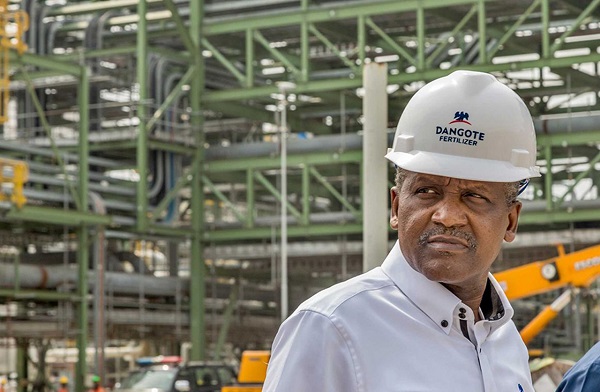The much-anticipated sale of Premium Motor Spirit (PMS), popularly known as petrol, from Dangote Refinery is about to kick off, and there’s a lot of buzz surrounding the new pricing structure. Nigerians have been eagerly awaiting this news, hoping it would bring some relief to the surging prices of fuel across the country.
But what exactly can we expect? Let’s break it down.
The New Pricing Range
Word on the street is that the Dangote Refinery’s petrol could be sold for N857 to N865 per litre at the pumps. This development follows the Nigerian National Petroleum Corporation Limited (NNPCL)’s negotiations to lift the product at N960 to N980 per litre and sell to marketers at N840 to N850. This pricing strategy has been designed to allow Nigerians to buy the product at the pump at more affordable rates than what we’ve been experiencing recently.
As of today, NNPCL retail stations in Lagos offer the lowest price at N855 per litre, while major marketers are selling around N920 per litre. If you’ve visited an independent marketer lately, prices may have even crossed the N1,000 mark, and in some regions, petrol costs have skyrocketed to over N1,200 per litre. So, the new pricing could signal a breath of fresh air for many consumers.
Will Prices Be Uniform?
Here’s where things get a bit uncertain. As of now, it’s unclear whether these prices will be uniform across the country. We know Nigeria’s fuel distribution is complex, and several factors—from transportation costs to supply chain issues—play a significant role in the varying costs at the pump. While it’s good news for Lagosians, Nigerians in other parts of the country may still experience some price differences.
What About the Under-Recovery?
You might wonder what the talk of under-recovery means. Simply put, this is the loss that NNPCL would incur by selling the product at a lower price than what they initially lifted it for. The current arrangement would represent an average N130 under-recovery for NNPCL. President Bola Tinubu has reportedly stressed the importance of ensuring that the price Nigerians pay at the pump does not become an unbearable financial burden.
The Impact on the Naira
The Minister of Finance and Coordinating Minister of the Economy, Wale Edun, has expressed optimism about the potential for this deal to alleviate pressure on Nigeria’s currency, the Naira. He highlighted that a significant portion—between 30% and 40%—of foreign exchange (FX) demands goes toward importing petrol. By structuring the deal in Naira, the government aims to reduce the strain on FX and, hopefully, stabilize the value of the Naira. This move is seen as an attempt to eliminate unnecessary transaction costs and improve the availability of petroleum products across the country.
The Refinery’s Readiness
As of September 15, 2024, NNPCL is set to begin lifting petrol from the Dangote Refinery. They have already started deploying trucks and vessels to the refinery. Reports suggest that over 300 trucks will be used to lift the product and distribute it to various parts of the country. As for diesel and aviation fuel, they’ve already been lifted from the refinery, so the expectation is that petrol will soon follow suit.
What’s Next for Marketers?
Depot and Petroleum Products Marketers Association of Nigeria (DAPPMAN) has already begun lifting other products and is now looking forward to lifting petrol. They are, however, waiting for more clarity on the pricing model, as this will determine how quickly they can distribute the product to Nigerians.
The Long-Term Outlook
From October 1, 2024, NNPCL will start supplying around 385,000 barrels per day (kbpd) of crude oil to Dangote Refinery, which will be paid for in Naira. In exchange, the Dangote Refinery will supply petrol and diesel of equivalent value to the local market, with diesel being available for sale to any interested off-taker in Naira, while NNPC will be the sole buyer of PMS. This marks a significant shift towards locally sourced petroleum products and a departure from reliance on foreign imports, which has long weighed heavily on Nigeria’s economy.
Conclusion
This new arrangement between NNPCL and Dangote Refinery is expected to ease the petrol shortage across Nigeria and, hopefully, reduce the burden on consumers by stabilizing prices. It could also provide some much-needed relief to the Naira by reducing the country’s reliance on FX for fuel imports.
However, there’s still some uncertainty, especially regarding uniform pricing across Nigeria and how long it will take for these changes to fully take effect. For now, we’ll have to wait and see how this deal plays out in the coming weeks.
But one thing is clear: the beginning of petrol lifting from Dangote Refinery marks a pivotal moment for Nigeria’s oil and gas sector. Let’s hope it brings the much-needed relief that Nigerians have been waiting for.



